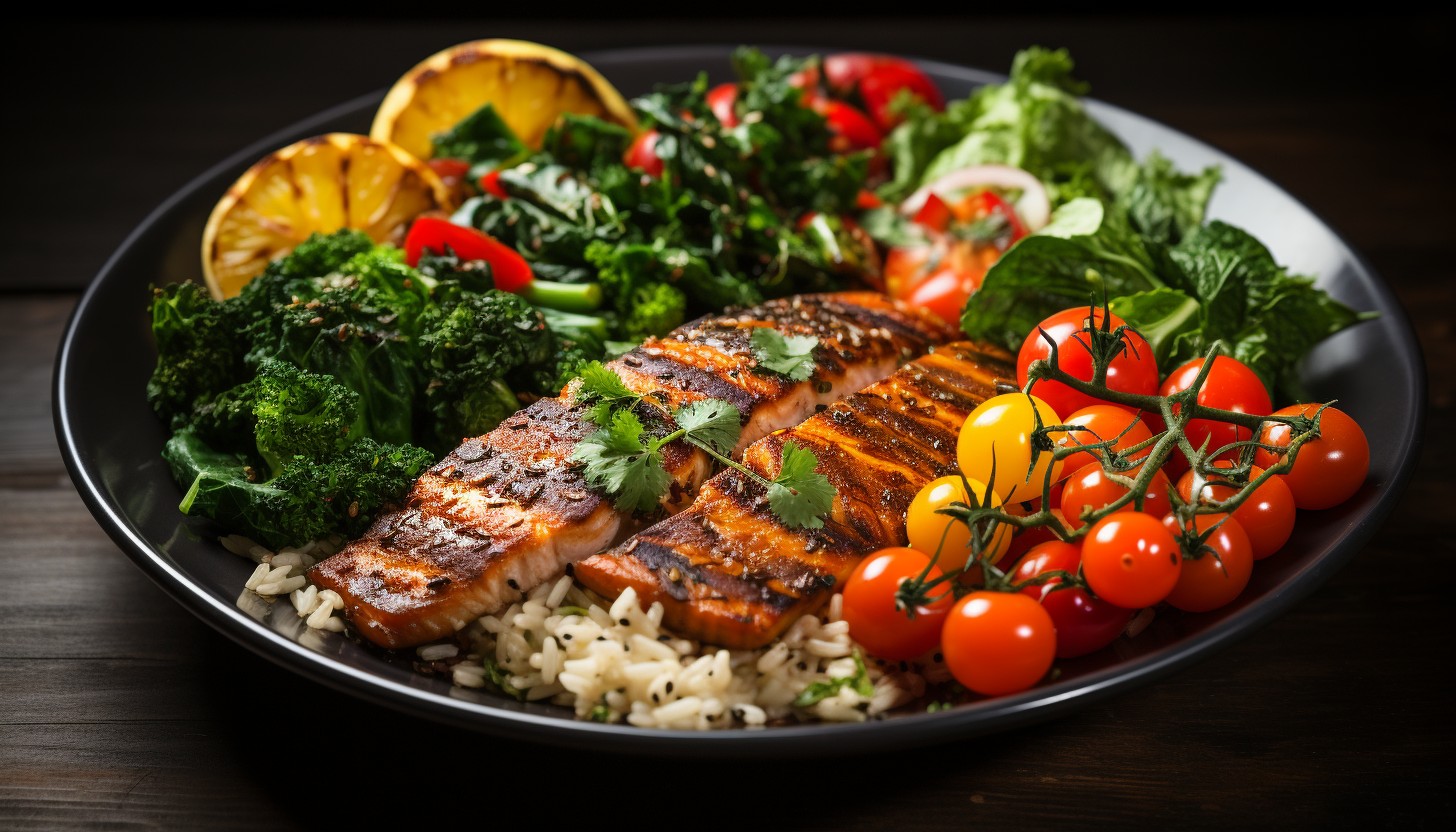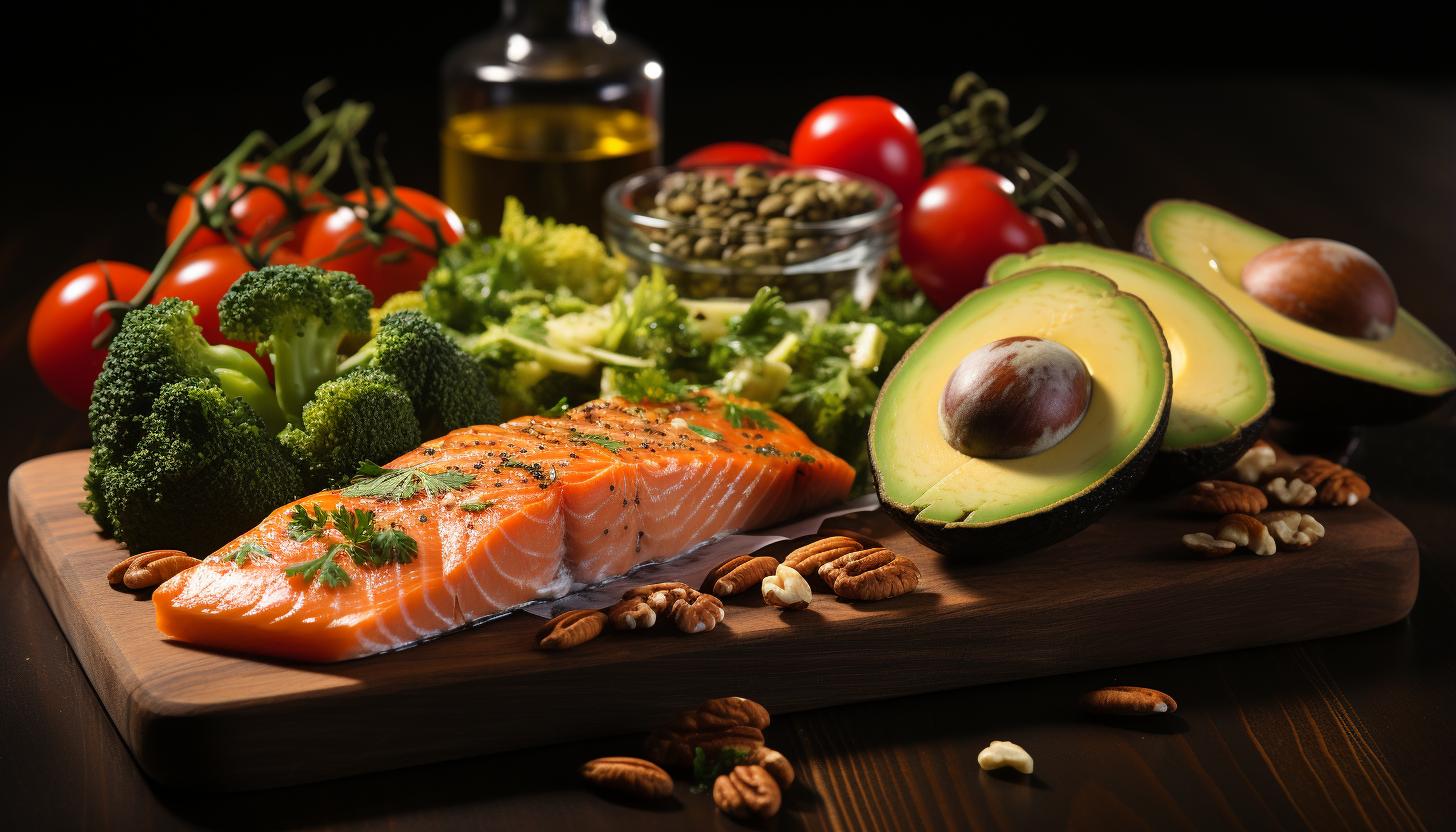Understanding Macronutrients for Optimal Running Performance

Are you ready to take your running performance to the next level? Understanding macronutrients is the key to unlocking your full potential on the track or trail.
Carbohydrates provide the fuel needed for those long runs, while protein repairs and strengthens your hardworking muscles. And don’t forget about healthy fats, which can boost endurance and keep you going strong.
Hydration is crucial for optimal performance and recovery, and micronutrients like vitamins and minerals round out the equation.
Get ready to optimize your running with a solid nutrition plan!
The Role of Carbohydrates in Running Performance

To optimize your running performance, you need to understand the role of carbohydrates and how they fuel your workouts. Carbohydrates are the body’s primary source of energy during exercise, especially endurance activities like running. When you run, your muscles rely on glycogen, which is stored glucose in the body, as their main fuel source.
However, as you continue to exercise, these glycogen stores become depleted, leading to fatigue and a decline in performance.
Glycogen depletion can have a significant impact on your running performance. When your glycogen levels are low, your muscles lack the necessary fuel to maintain intensity and speed. This can result in decreased endurance and an increased risk of hitting the proverbial wall during a race or long run.
One strategy for maximizing carbohydrate stores before a race is carb loading. Carb loading involves increasing your carbohydrate intake in the days leading up to an event or long run to ensure optimal glycogen stores. It typically begins around 2-3 days before the race and involves consuming high-carbohydrate foods such as pasta, rice, potatoes, and fruits.
Protein: Fueling and Repairing Muscles for Runners

Fuel your muscles and aid in their repair by incorporating protein into your diet as a runner. Protein plays a crucial role in muscle recovery and growth, making it an essential macronutrient for runners. When you engage in intense physical activity like running, your muscles undergo small tears and damage. Protein helps to repair these micro-tears and build new muscle tissue through a process called protein synthesis.
To optimize protein intake, it is important to consume a variety of high-quality protein sources throughout the day. Lean meats such as chicken and turkey, fish, eggs, dairy products like Greek yogurt or cottage cheese, legumes such as beans and lentils, and plant-based proteins like tofu or tempeh are all excellent choices for runners.
Here is a table that highlights some common protein-rich foods along with their approximate protein content per serving:
| Food | Protein Content (per serving) |
|---|---|
| Chicken Breast | 26 grams |
| Salmon | 22 grams |
| Greek Yogurt | 17 grams |
Incorporating adequate amounts of protein into your diet can enhance muscle recovery after running sessions. Aim for approximately 0.8-1 gram of protein per kilogram of body weight daily to meet your needs as an active runner. Remember to spread out your protein intake throughout the day to promote optimal muscle synthesis and recovery.
The Importance of Healthy Fats for Endurance Athletes

As an endurance athlete, it is important to incorporate healthy fats into your diet to support overall health and enhance recovery. Omega-3 fatty acids, in particular, play a crucial role in the body’s functioning and can provide numerous benefits for athletes. Here are some reasons why you should consider incorporating these fats into your diet:
– Omega-3s: These essential fatty acids have been shown to reduce inflammation, which is often heightened during intense exercise. By reducing inflammation, omega-3s can help prevent injuries and aid in post-workout recovery.
– Heart health: Healthy fats, like those found in avocados, can improve cardiovascular health by lowering cholesterol levels and reducing the risk of heart disease. This is especially important for endurance athletes who put their hearts under significant stress during long training sessions.
– Joint health: The anti-inflammatory properties of healthy fats can also benefit your joints by reducing swelling and pain commonly associated with repetitive movements involved in running.
– Brain function: Omega-3s have been linked to improved cognitive function and memory retention. As an endurance athlete, having a sharp mind is just as important as having a strong body.
Consider adding avocado to your runner’s diet – it’s not only delicious but also packed with healthy monounsaturated fats that promote heart health and provide additional nutrients like potassium and vitamin E. By incorporating these healthy fats into your diet, you’ll be supporting your overall health while reaping the benefits of enhanced recovery and performance as an endurance athlete.
Hydration: The Key to Running Performance and Recovery

Staying properly hydrated is crucial for maintaining optimal running performance and aiding in post-run recovery. When it comes to hydration, it’s not just about drinking water; it’s about optimizing your electrolyte balance as well.
Electrolytes are minerals like sodium, potassium, and magnesium that play a vital role in regulating fluid balance and muscle function. During exercise, you lose electrolytes through sweat, so replenishing them is essential.
To optimize hydration for running performance, start by hydrating adequately before your run. Drink 16-20 ounces of water or a sports drink at least two hours before you hit the pavement. During your run, aim to drink 4-8 ounces of fluids every 15-20 minutes to replace what you’ve lost through sweat.
Post-run hydration is equally important for optimal recovery. Within 30 minutes of finishing your run, replenish your body with fluids and electrolytes. You can choose from options like coconut water or a sports drink that contains both carbohydrates and electrolytes.
Remember to listen to your body’s thirst cues throughout the day and adjust your fluid intake accordingly. By prioritizing proper hydration and balancing electrolytes, you’ll be able to maximize your running performance and enhance post-run recovery.
Micronutrients: Boosting Running Performance With Vitamins and Minerals

Replenishing your body with essential vitamins and minerals can greatly enhance your running performance. As a runner, you put a lot of stress on your body, and it’s important to give it the nutrients it needs to recover and thrive.
Here are four key micronutrients that can help boost your running performance:
– Antioxidants: These powerful compounds help improve recovery and reduce inflammation in runners. Foods rich in antioxidants include berries, dark leafy greens, nuts, and seeds. Adding these foods to your diet can aid in repairing muscle damage caused by intense training sessions.
– Electrolytes: These minerals are essential for enhancing performance and preventing cramping during long-distance running. Electrolytes such as sodium, potassium, magnesium, and calcium help maintain fluid balance and regulate muscle contractions. Including electrolyte-rich foods like bananas, coconut water, avocados, and spinach can provide the necessary replenishment for optimal performance.
– Iron: This mineral is crucial for oxygen transport within the body as it helps produce red blood cells. Low iron levels can lead to fatigue and decreased endurance. To ensure adequate iron intake, incorporate sources like lean meats, beans, lentils, spinach, and fortified cereals into your diet.
– Vitamin D: Known as the sunshine vitamin because our bodies produce it when exposed to sunlight; vitamin D plays a role in bone health and immune function. Runners who train indoors or live in areas with limited sun exposure may be at risk of deficiency. Consider adding fatty fish (salmon), egg yolks or fortified dairy products into your diet or consult a healthcare professional about supplementation.
Conclusion
Congratulations! You’ve reached the finish line of understanding macronutrients for optimal running performance.
By fueling your body with the right balance of carbohydrates, proteins, and healthy fats, you can enhance your endurance and repair muscles efficiently.
Remember to stay hydrated to keep your performance at its peak and aid in recovery.
Don’t forget about micronutrients like vitamins and minerals that play a vital role in boosting your running performance.
So lace up those shoes, feed your body right, and let your running journey take flight like a well-oiled machine on a smooth road.
Keep pushing forward!






